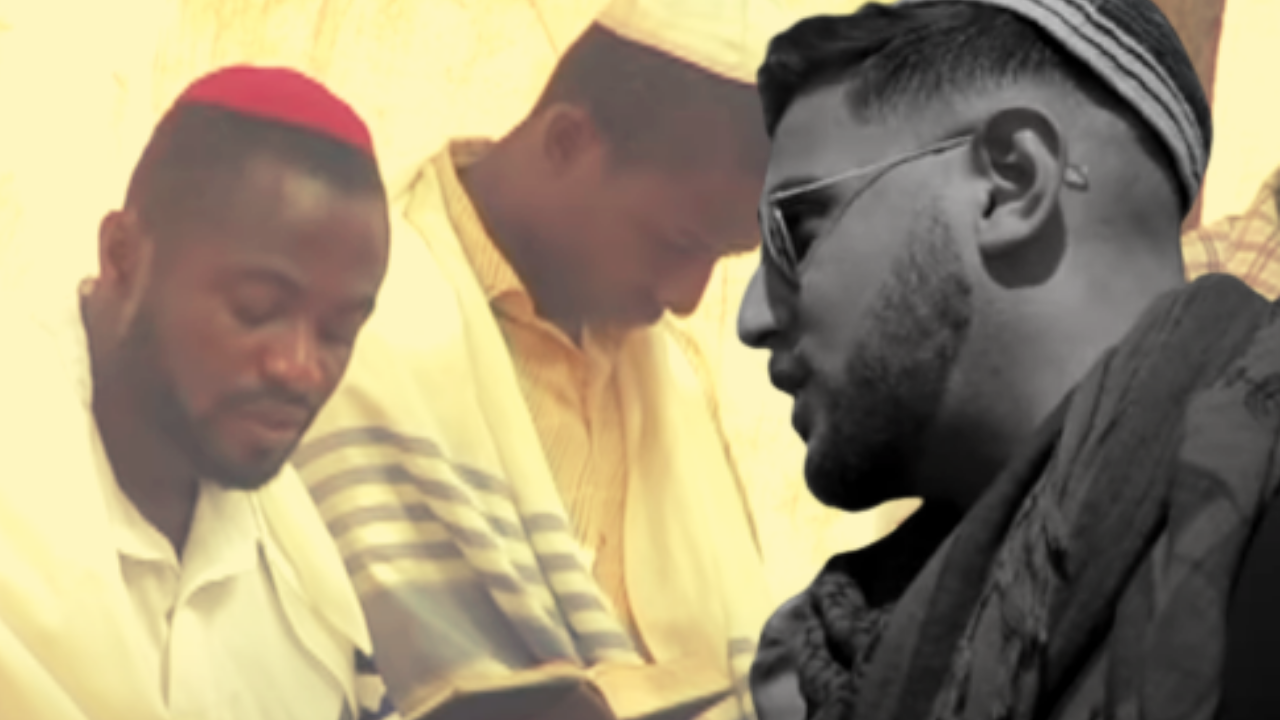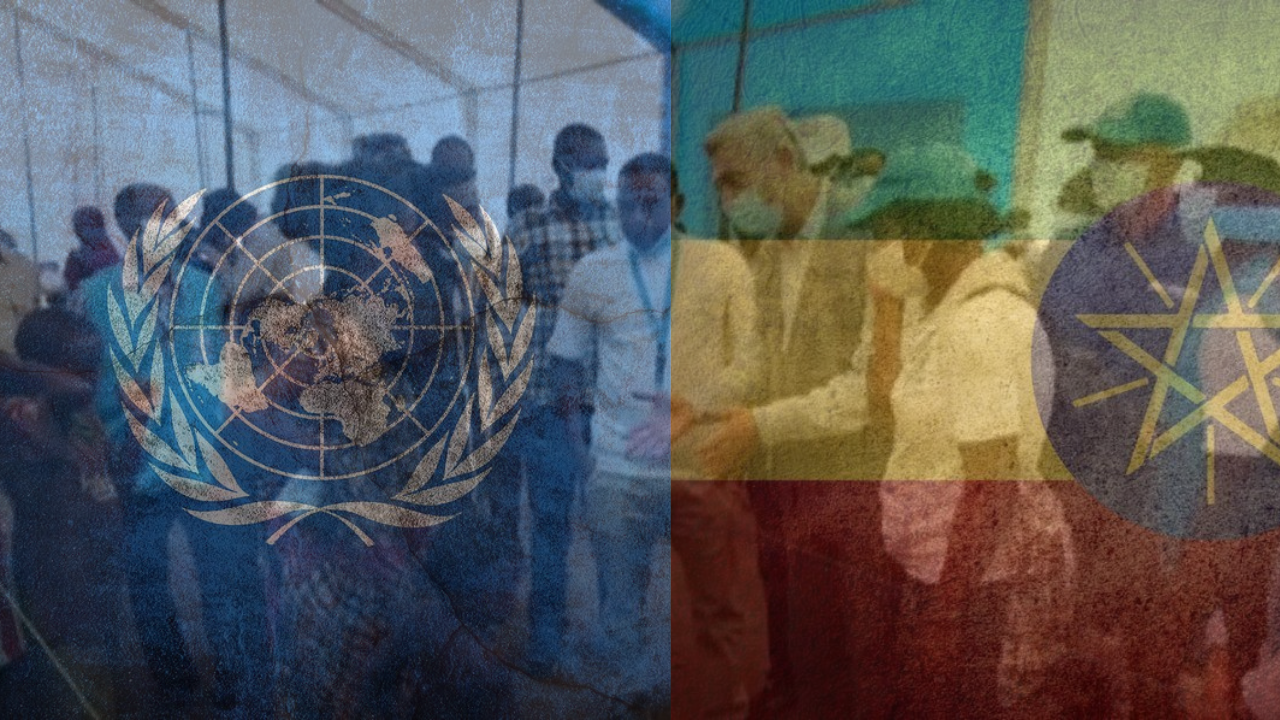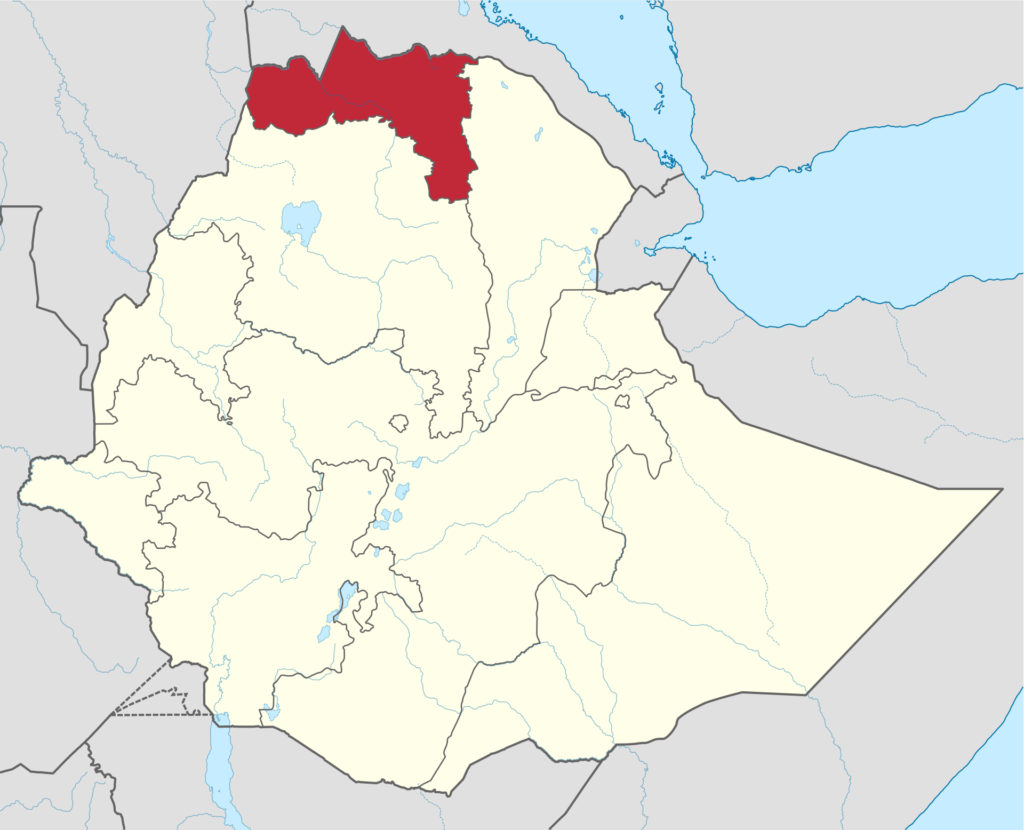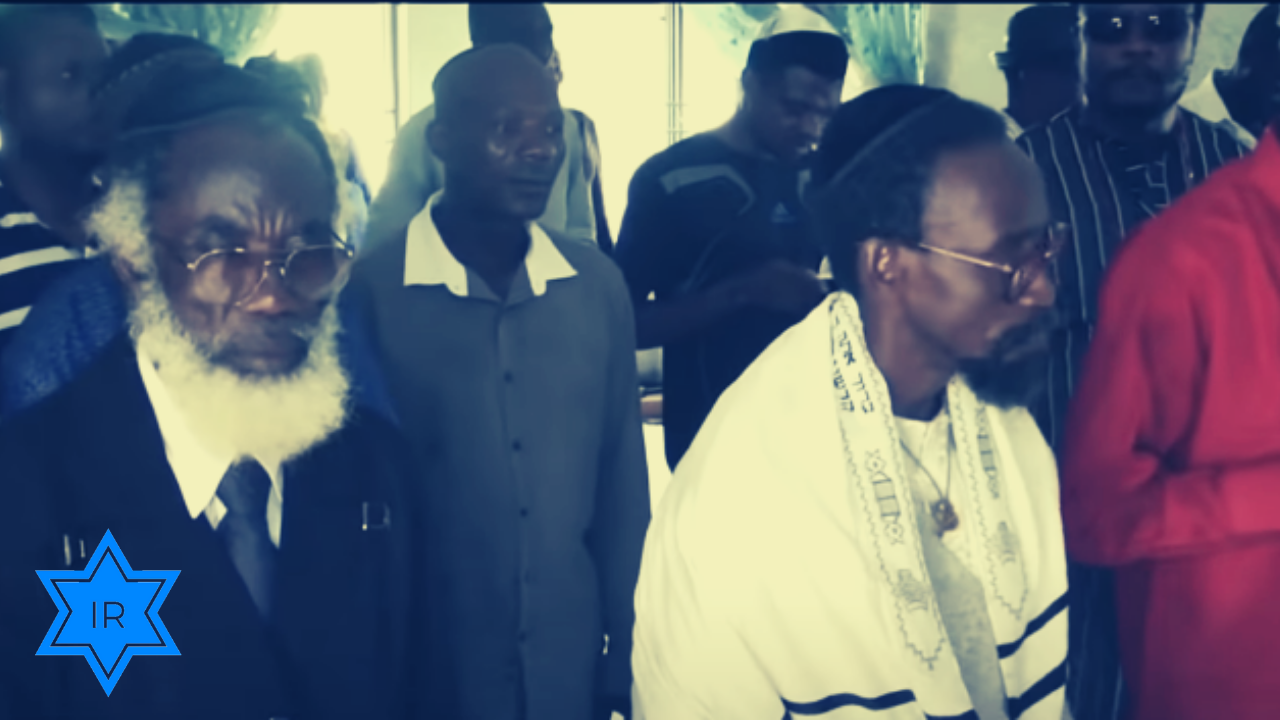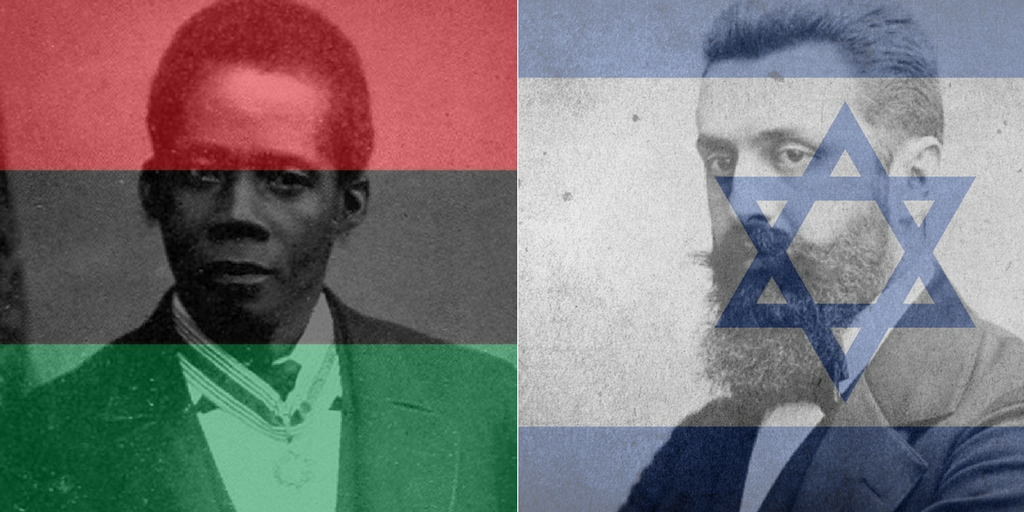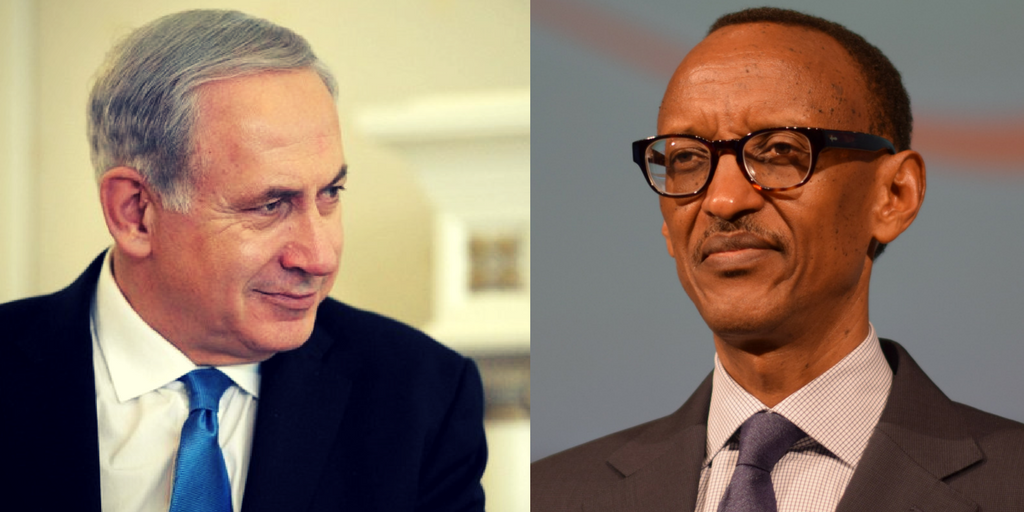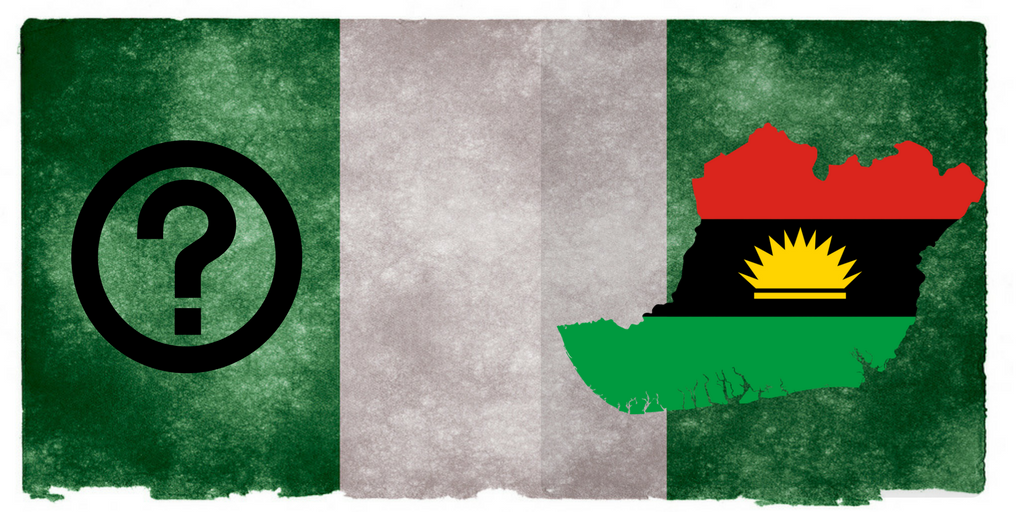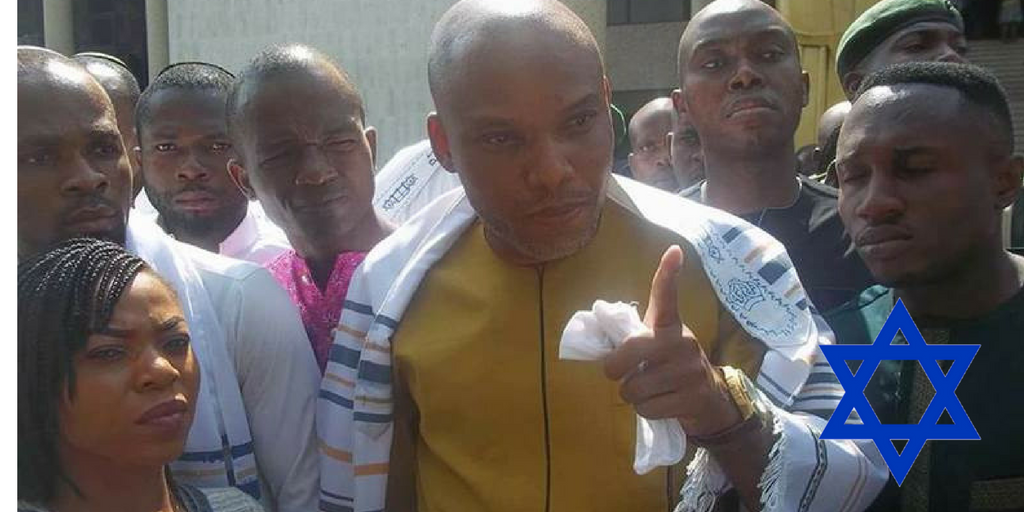The Igbo nation has a vibrant and resourceful population of 50 million. Within this teeming population there is a sufficiently developed bank of human resources capital living in a physical geographical space known as Igbo land. Igbo people have an unmistakable unique identity, a well-developed set of national cultural values and clearly defined and distinct world views. On the whole the Igbo nation has everything it takes to exist and manage their affairs independently of other people. So, the Igbo are prepared to take their own fate in their hands and will not for any reason continue to play any second fiddle or remain subservient to any other group of people. Therefore, Igbo people are out to do everything in their power to achieve Igbo self-determination and political independence from Nigeria.
On the 29th of May 1966 the Igbo renounced their Nigerian citizenship forever. Starting from that fateful day the Igbo determined to reclaim and reassume their national sovereignty and political independence outside Nigeria. That day marked the beginning of the Nigerian state’s pogrom of the Igbo and other ethnic nationalities from the former Eastern Region. The aim and scope of the pogrom was the total extermination of all Igbo from Nigeria. This made the Igbo along with these other affected peoples and Igbo neighbors to secede from Nigeria as the Republic of Biafra. On the 30th of May 1967 the Biafrans unilaterally declared the independence of their region from Nigeria. After the declaration of independence the Nigerian state declared war on the new country on 6th July 1967. The war between the two states lasted till the 15th of January 1970. In the end Biafra was defeated. The Igbo got reabsorbed into Nigeria. But many systemic policies were put in place by the Nigerian state to marginalize and further punish the Igbo for attempting to secede.
After the war in spite of the many oppressive state policies, threats, intimidations and actual killings of the Igbo, they still refused to be deterred and continued clandestinely the struggle for a total and absolute secession and independence of Igbo land from Nigeria. But unlike the 1967 to 1970 struggle for Biafra independence, the new and ongoing struggle to free Igbo from Nigeria is exclusively an Igbo initiative and project which does not involve any of their neighboring ethnic nationalities or their lands. The extent of this Igbo state covers all and only Igbo lands as they were before the advent of the European colonialists who amalgamated the different ethnic nationalities with divergent and irreconcilable cultures, worldviews and lands into a dysfunctional unitary Nigerian country. In this new struggle for Igbo independence, the special circumstances that necessitated the joint multi ethnic independent project in the past are not present. Therefore, this new Igbo state is not Biafra and cannot justifiably be called Biafra because it has no resemblance to the former joint multi-ethnic struggle for an independent state in the 1960s.
This new agitation for Igbo independence that began in 1970 soon after the Biafra War is fundamentally different from the 1967 to 1970 Biafra war for independence. The 1960s struggle is what I generally refer to as Ojukwu’s Biafra. In this new struggle it is simply and unambiguously the struggle for the creation of a modern and exclusive Igbo-only independent state. This fundamental difference between the old and the new struggles cannot be overemphasized and no one needs to misunderstand it.
This difference should be understood in the light that it is typically said that every generation fights their own battle in their own unique way based on their unique circumstances. What drove the former and what is driving the present movements are basically different. In the 1960s starting from May 29, 1966 the systemic countrywide mass killing of the Igbo and the destruction of their properties began and it was geared towards cleansing out the ethnic Igbo from the Nigerian space. This was what produced the declaration of Biafra independence.
Starting from 29th May 1966 these government backed killings of the Igbo continued throughout Nigeria for one year despite all efforts by the Igbo to reconcile and make peace with Nigeria. After one year of unabated killings and destruction of Igbo properties and, with the death toll of over 100,000 Igbo and the other Easterners who were the victims jointly decided to secede from Nigeria. So, they unilaterally declared independence from Nigeria as the Republic of Biafra. For them Biafra was their best move to protect and preserve the lives and properties of all those within the boundaries of the new state. To prove their determined resolve to defend themselves and their land they fought a bitter war for about three years which ended up costing the Igbo a total of 3.1 million lives in addition to the 400,000 deaths of the other Biafrans.
Contrasting the 1960s Secession Effort with 2020 Effort
The 1960s effort to free Igbo from Nigeria was mostly necessitated by Nigeria’s pogrom against the Igbo and the other easterners. This is not exactly the same with today’s Igbo’s decision to leave Nigeria. In this 2020 and as it has been since the end of the war in 1970 Igbo are not fighting to free themselves from Nigeria entirely because of the ongoing injustices and killings against them. Since the end of the war the Igbo have endured in Nigeria many oppressive marginalizing polices and systemic denial of opportunities and without doubt, these unjust and wicked treatments have been bad enough. But today’s Igbo decision to leave Nigeria is based on the simple reason that they do not wish to remain Nigerians anymore. They would instead be Igbo. As a people they would rather exist and live under their own Igbo identity and manage their own affairs within an independent Igbo nation state outside Nigeria.
As we already noted, Ojukwu’s Biafra was created along the boundary lines of the defunct Eastern Region which he presided over as the governor prior to Biafra declaration of independence. The irony of it is that Eastern Region of Nigeria split up Igbo population in two with one on the east and the other half on west banks of the Niger River. This split the Igbo resulted in the Western not being included in Ojukwu’s Biafra map. That exclusion of course is unacceptable to the Igbo. The Eastern Region was created that way by the British colonialists. They were obviously insensitive to the ugly divisive consequences of splitting up brothers so long as it suited their business convenience and interests. The boundaries of the Eastern Region were established to serve the business and economic interests of the foreign colonialists rather than to work in the political and economic interests of the indigenous peoples.
After considering the circumstances surrounding the creation of the former Eastern Region along whose boundaries were based Ojukwu’s Biafra, the Igbo totally rejected to adopt the defunct Biafra’s map for the new Igbo country. Among the obvious reasons the Igbo give for rejecting the old Biafra map is that the borders were established by the same foreigners who created Nigeria. Over the years most analysts of the reasons for Nigeria’s failure as a nation have come to the consensus that the Nigerian experiment failed principally because the foreigners who created the Nigerian state failed to take into consideration the irreconcilable differences that exist among the various ethnic peoples and cultures who were forced to live together as citizens of the same country. Unfortunately it is very clear that the same factors that orchestrated Nigeria’s failure are present within the borders of the defunct Biafra. Ojukwu’s Biafra boundaries split Igbo people and their land and this is unacceptable and will not apply to the new Igbo state.
Igbo and Biafra are not One and the Same
Prior to 1967 Igbo people were never known as Biafrans. At no other time in history except for the brief period of two and half years (May 30, 1967 to January 15, 1970) were Igbo people ever identified as Biafrans. Yet, since the past five decades after the war there has been this prevalent misconception which has left some people confused. Since after the war, some people have tended to use Igbo and Biafra identities interchangeably when referencing the Igbo. This is wrong. The truth is that Igbo people along with other ethnic nationalities used the name Biafra and its identity to fight a war known as Biafra War from 1967 to 1970. Biafra War was fought by the Igbo and others from the former Eastern Region as a joint effort to free their people and lands and gain independence from Nigeria. Unfortunately, the Biafran project failed as the war ended in the defeat of Biafra.
At the war’s end Igbo people then reverted to their original Igbo national identity and ceased being Biafrans. But out of ignorance despite the passage of many years some people continue to send out mixed messages to observers about who the Igbo are and what their collective national goal is. For the sake of clarity it is important that we emphasis here that Igbo people are no longer Biafrans but Igbo and their goal is to establish an independent modern Igbo nation state outside Nigeria.
Frustratingly however, one can still find a pocket of ignorant individuals who in spite of this clear and unclouded known difference between Igbo and Biafran identities still use the words Igbo and Biafra as if they were interchangeable or are one and the same thing. They are not. Igbo is a nation or the national identity of the ethnic Igbo people. The land they occupy is called Igbo land, the people are known and called Igbo, the culture they practice is Igbo culture and their language is Igbo.
The Igbo are a national people that fit perfectly the current United Nations categorization and definition of who national peoples are. And it is based on that definition that they declared in their charter that any such group of people are legitimately and legally entitled to actively seek for their self-determination and can aspire to be independent of all others and exist and thrive on their own terms as a unique cultural and national group or state.
Most importantly, we need to state here that since the end of the war no one has been given any Igbo mandate to re-impose the Biafran identity on the Igbo nation; the people and their land. In 1967 the Igbo and their neighbors adopted Biafra as a collective identity on an ad hoc and temporary basis. They adopted the Biafran banner and identity to defend themselves against a common enemy. Beyond 1970 no one is authorized to continue to refer to Igbo as Biafrans or their land as Biafra land. It is important to clearly state that Igbo’s abandonment of the Biafran identity after 1970 does not mean that the Igbo at any time abandoned their quest for self-determination and independence from Nigeria. The Igbo are still seeking to restore and reestablish their sovereign and political independence under Igbo banner and identity instead of under the Biafran banner and identity.
Biafra is also a Foreign Nomenclature
One significant reason that some people who support the dissolution of the Nigerian union give is that the name Nigeria is foreign to the local people. They assert that Nigeria as a country was put together and christened Nigeria by foreigners. Yet these same people who oppose the use of Nigeria’s nomenclature are still infatuated and hooked on Biafra as the name for their proposed fantasy country. Such people overlook the fact that Biafra too is as foreign as any foreign names can be. Some of them have argued and defended the name Biafra by imputing strange and ridiculous local or Igbo meanings to the word in order to convince people that it is indigenous. Some of the people can speculate and argue as much as they like but that does not change the fact that the name Biafra has a European origin. The bight was christened so by the Portuguese pioneer explorers who were the first to visit the West African coastal waters before the other Europeans.
The first Europeans who came in contact with the coast dwellers of the Atlantic in West Africa were from Portugal in the 15th and 16th centuries. Initially the interactions between the Europeans and the natives were solely commercial. So, to aid them in their navigation and trade routes the Europeans made the map of the territory for their convenience and gave it the name Biafra that it bore except that the Nigerian government changed it to Bight of Benin after the war in their bid to spite the former Biafrans.
Justifying the Igbo Independence Project
Igbo as a people are unique and clearly identifiable with their own unique set of culture, language, a set of unified customs and norms and a specific physical geographical space. They therefore, can justifiably seek to determine themselves or who they are. They do not need to offer any other qualifications or reasons as basis for them to seek to be independent and autonomously manage their own affairs without any input or interference from any other people. But because it is true, the Igbo can still make references to the issues of unjust systemic mistreatments, marginalization, killings and other such injustices to which they are subjected in Nigeria. But those do not form the most important argument that the Igbo present for their independence. Those unjust conditions and mistreatments can change but the Igbo persona and identity does not change. So, the Igbo are campaigning for their self-determination and independence based on who they are and not based on the adverse things that are happening to them in Nigeria. The Igbo project to free themselves from Nigeria and become independent is grounded on the people’s collective wish to be free and live autonomously based on who they are. It is the people’s deliberate conscious effort that does not depend on the vagaries of fortune or the flimsy and fleeting circumstances of human whims or even the caprices of nature. The decision is immutable and continues to endure until the goal is achieved.
Easily and without doubt the singular most important argument that any group of people can present for wanting to be free and independent from others is their desire to preserve their identity and their way of life as a people. And this is what the Igbo are working to achieve. We are well aware that it may be harder to sustain for a long time when arguing for freedom merely based on temporary unjust and unfavorable conditions the people are subjected to. Such argument might be countered easily by some clever and cunny individuals who deal well in sophistry, half-truths and less than honest rhetoric. Such individuals might come up with the insincere argument that others within the same space are going through the same pain and injustice and as such the Igbo have no sufficient excuse to opt out. Additionally, if Igbo’s argument is based mainly or solely on such ephemeral issues a day might come when any astute politician could emerge in Nigeria and decide to take on those challenges and injustices that Igbo are complaining about. Such effort maybe pretentious or genuine, it doesn’t matter but it might help to weaken Igbo argument and make it harder to win the argument for Igbo separation and independence. On the contrary, the Igbo will always have a valid argument if their need for independence is always based on the idea of their desire to preserve their Igbo unique and separate identity. Fundamentally the Igbo can and do have the right to seek independence and self-determination just for the sake of it and without giving any other reason other than that they are Igbo and a part of humanity.
Igbo Nation State is not Biafra State
For those who are clamoring for a new fantastic state of Biafra on the basis that Nigeria is a foreign creation and therefore a fictitiously forced-on identity should also not overlook the fact that the same applies to Biafra. Some people argue, and rightly so that Nigeria was created for the natives, without their consent, by the British colonialists and, for this reason it is unacceptable to the people who are going through the pain of the consequences of that miscreation. Others also believe that Nigeria failed mostly because different peoples with different and conflicting cultures, languages and world views were forced to share the same Nigerian citizenship. They assert that ever from inception these incongruent ethnic and national interests have continued to clash against each other. Undoubtedly, it is true because these factors are responsible for the dysfunctional state of things in Nigeria and its ultimate failure. Yet it boggles the imagination to see some of these same people fail to understand that in the Biafra they are fighting to reestablish lies the same Nigerian failure-factors. Such individuals continue to ignore the fact that the so-called defunct Eastern Region on whose map the old Biafra was based was also the creation of the same British colonialists. If they have rejected Nigeria as they rightly should then they should also reject the old Eastern Region. It was created by the same British colonialists. What is more is that the same factors of diversities of peoples, cultures, languages and interests that brought about Nigeria’s failure, are clearly present in the so-called old and proposed new Biafra. If Nigeria failed on the basis of the enumerated reasons what then is the guarantee that this new utopian Biafra will not fail.
An Igbo State by the Igbo and for the Igbo
There is nothing that is stopping the present generation of Igbo from founding a new modern Igbo nation (country or state) for the Igbo and by the Igbo without any foreign input. We believe that there is no excuse for this generation of Igbo to lazily choose to fashion this new country along the lines of an existing foreign concept and cartography. This generation of Igbo must reject the temptation of choosing the easy way out or traveling the path of least resistance all because they don’t want to put in some extra work and “think outside the box” of an existing foreign concept. In this new independence project all things must be made new. The Igbo must draw a fresh new map of Igbo country by Igbo and for the Igbo. They should roll up their sleeves and actually go to work to produce an authentic Igbo map that will serve this generation and many more to come.
In some quarters some presumptuous and misguided Igbo nurse the ridiculous dream of one day inventing what they refer to as a “United States of Biafra.” They believe that the Igbo will sometime in the future after independence go into a confederating alliance with the other neighboring ethnic nationalities through some kind of a memorandum of understanding. It is as clear as daylight and, no one needs any soothsayer to see that this is presumptuously reckless as it will only become a hopeless “Disunited States of Biafra,” an epitome of a house of cards. Except by name such creation will not be anything quite different from the extant Nigeria. What is amazing though is that one would have thought that after the disastrous experience of the united Nigerian nightmare that some advocates for this new Biafra would have learned some lessons. It is expected that by now a long time has passed, enough for such reckless dreamers to reflect and avoid everything with the shape and appearances of Nigeria in Igbo quest for independence.
The Igbo do not have to copy what other people have done elsewhere in order to be accepted in the comity of nations. Therefore, it’s not going to be because there is the United States of America, the United Kingdom of Great Britain so, the Igbo must create a “United States of Biafra” just to prove anything. U. K.’s lesson should be enough to warn those who harbor such impractical fantasy to desist from committing such foolish and sentimental mistakes. In case of Britain, after 300 years of being together the union is crumbling, as everyone can see. The various components of the realm are opting out. Igbo therefore at this point must not fall into a similar mistake. In their effort to found a new modern Igbo state they can take a lesson from the British experience and choose to get it right from the beginning. Every Igbo everywhere can and must choose to reject the fictitious Biafran identity in favor of their Igbo identity.
Sentiments and Compromises do not build great and lasting structures
There is no any successful and progressive state that is founded and built up on sentiments. A successful Igbo state is only that which is founded and built on Igbo ideas, cultural values and worldviews and not that which is sustained by borrowed or compromised ideas and cultural values. Igbo’s collective goal at this point should be to found a functional and successful society rather than trying too hard to appear “woke” and look pretty as a fanciful “multicultural” borderless and dysfunctional society.
In the many years of my search I am yet to come across any convincing argument on how the Igbo persona will diminish if they choose to found and run an exclusive Igbo-only country. Of course such Igbo-ideology or Igbo-worldview-based country will not in any way be closed to other people who are willing to come and get assimilated and become Igbo citizens through a standard formal procedure. In the meanwhile some of us have wondered without end what it is that drives some Igbo to sometimes readily and willingly jettison their Igboness or at best compromise and dilute it at the drop of a hat. The question is; what is there for anyone to be ashamed of in a unique Igbo identity. Why should anyone have to compromise their Igboness in order to prove to others that the Igbo are also a part of this universe and should rightfully hold their own uniqueness in it. At this point, the importance of self-acceptance and pride in who the Igbo are cannot be over emphasized. There can never come a time when it will become a virtue to debase oneself in order to prove to the other people any point.
It will be an unforgivable collective amnesia if Igbo people can find it easy to forget the fact which is still very fresh in the people’s mind how self-hurting compromises contributed so much in causing the failure of Azikiwe’s Nigeria. Someone had once said that compromises make for good umbrellas but not good as roofs. In the light of this discussion, nothing can be truer. The Igbo should learn to always think in long terms when Igbo national interests are the concern. An Igbo should always ask how will the decision I make or the thing that I do affect Igbo individuals or Igbo collective in the next twenty or fifty years.
Attaching Igbo’s destiny to those of others will always spell disaster. The Igbo must learn how to believe in themselves and find peace in themselves, enough to always rely in their collective inner strength. When entering into any alliance either as individuals or as Igbo collective all Igbo persons must always consider what will be the effects of those agreements in the lives of the living and unborn generations of Igbo. No Igbo should ever decide or act in a way that will knowingly hurt Igbo interests or individuals. Every Igbo is his brother’s keeper, onye ahana nwanne ya. The Igbo do not have to sell themselves cheap, throw away their identity and tell the others that there is nothing else to the Igbo. No, there is. There is “this” Igbo uniqueness. This Igbo uniqueness is not in any way better than those of others. But it is theirs; and all Igbo must endeavor to cherish and guard this Igboness from dishonor either from within or from without.
Some of us may have come across those who argue for a compromised Igbo state on the premise that the Igbo and some of their neighboring ethnic nationalities are closely connected because they have lived in close proximity for so long and for that reason they have a few things in common. They talk about intermarriages and even in some cases they cite instances of common ancestral connections. That point of course is an emotional argument suffused with sentiments. Remember we had argued earlier that sentiments are not sufficient when the goal is to accomplish any meaningful thing in real life social engineering. In real life situations, no matter how closely related we are, a time will come when for the sake of adventure and expansion of human horizon, all responsible parents must cut loose the tie and free their lovely children to go their separate ways. It is nothing different from the birthing process of a child. No mother leaves the umbilical cord attached to the child after birthing in order to prove that the child was born by them. Unfortunately this appears to be what the purveyors of the neighbor-connectedness argument are trying to do. They pretend to forget that even children who were born by the same parents eventually move away to found their unique, independent and separate family staid (obi.) And once these separations and independence begin to take place, it is only a matter of time that all the traces of close consanguinity begin to fade away and prove harder to establish. Yet, and very fortunately so, no matter how faded this relatedness becomes there will never come a time when that inter connectedness of all humanity will be lost entirely. The true story of our collective humanity has always shown that no matter how long or how far apart we drift from each other that unbreakable brotherly link that connects humans in one big family of our common humanity and brotherhood will still endure. Yet, in spite of this human connectedness and, for the sake of variety and the constant need to continually open up new frontiers for humanity, we cannot stop this inevitable human separating experience.

